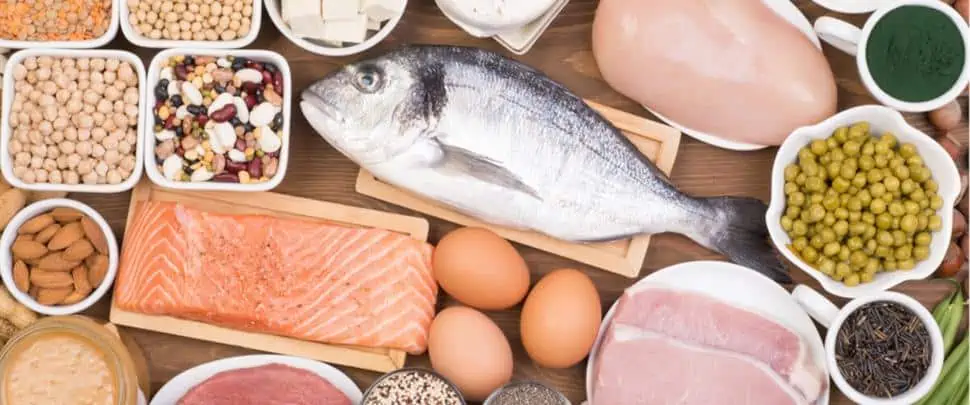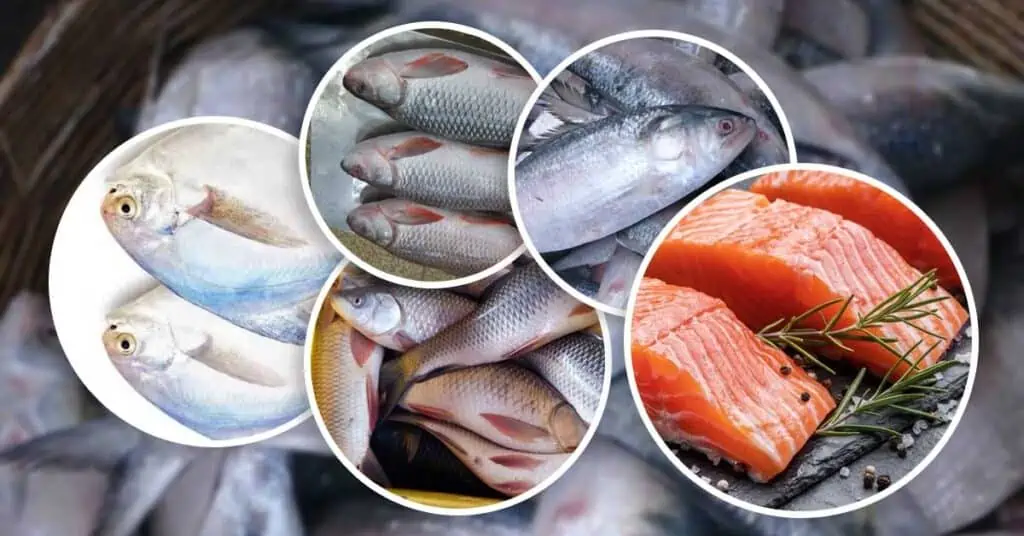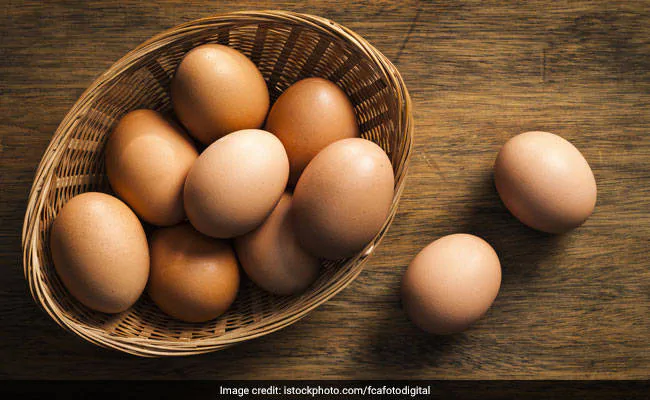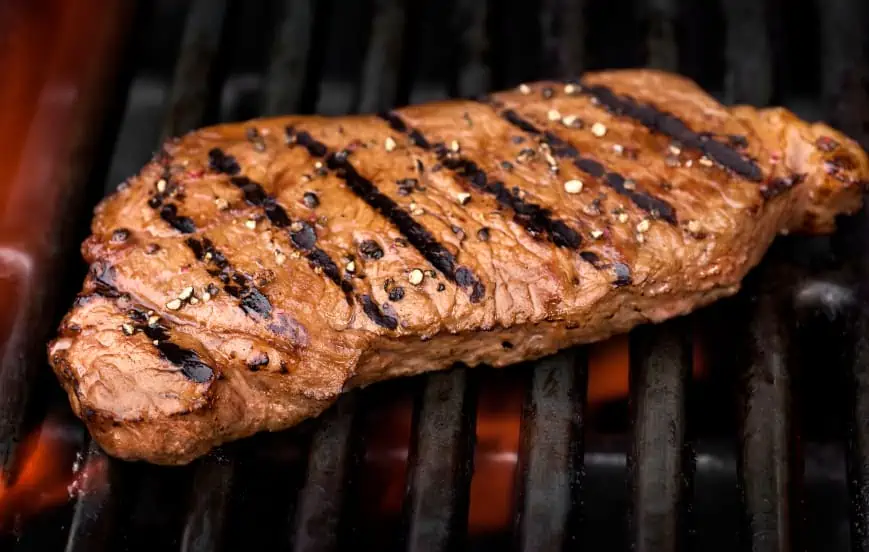Maintaining a healthy quality of life is crucial for elderly adults. Protein for seniors becomes one of the essential factors in ensuring their good health and fitness. Did you know one in two elderly adults does not meet their standard protein requirement? Major threats caused by lack of protein intake are loss of strength and several other bodily functions. Several studies have shown that essential amino acids are one of the critical nutrients required in elderly adults for muscle growth.
Table of Contents
Protein requirements, whether animal or plant, should increase by around 50% with age to keep muscle strength and quality of life. It will assist the muscles in functioning and daily activity. Also, at age 40, muscular mass begins to deteriorate, a condition known as Sarcopenia. So it is essential to increase protein for the elderly to build muscles.
Today, we will discuss how a high-protein diet for seniors is essential.
A well-balanced diet with essential nutrients and proteins is critical for seniors. That’s why there is a need to incorporate protein into their meals. Since protein for seniors helps in muscle growth and strength, it keeps the body fully functioning. Senior meal replacement shakes can also be a solution.
Why is more protein essential for seniors?
For older adults, protein helps heal from injuries, maintain healthy eyes, and balance the fluid present in the body. Older people need more protein when trying to keep their weight down, fight off chronic illnesses, or get hurt.
A healthy, protein-rich diet with proper exercise can help maintain seniors’ muscle mass and body weight. Furthermore, the right amount of protein can also significantly contribute to your overall health.
Protein calculator for seniors
Finding the exact measure of protein for older adults might be challenging. Older people do not get enough protein to meet their daily nutritional needs. So, it is essential to know how much protein older people need to meet their daily needs.
A protein calculator can be useful for seniors as it helps them determine their daily protein intake based on age, gender, weight, and activity level.
Using a protein calculator can help seniors ensure that they are getting enough protein to support their muscle mass, bone health, wound healing, immune function, and weight management goals. It is always important to consult a healthcare professional before significantly changing one’s diet.
According to suggested research, older people require a higher protein intake to fight against a chronic condition or better weight management. People who battle with diabetes need their daily protein intake to prevent Sarcopenia. Because Sarcopenia can lead to muscle loss and strength to a great level. As a result, it might affect their everyday activities. That’s why it’s essential to get enough protein in your food.
We suggest you double your personalized RDA to ensure you get the protein you need. A 170-pound person, for example, requires 77–97 grams of protein. If you are 50 and have doubled your RDA, it will be much better to keep and build muscle than if you didn’t.
In addition, if you have a kidney or other long-term illness, this may not be the best thing for you to do. It’s always best to consult your healthcare provider for protein levels.
Benefits of Protein for Seniors
1. Repair Damaged Tissue & Blood Cells
The best protein for seniors is a food rich in protein and various micronutrients, which largely repairs tissue damage in older people. It also helps rebuild the body’s blood cells, damaged skin, and collagen.
2. Reduce Cholesterol Levels & Sugar levels
Protein-rich foods like fish, eggs, lean meat, or beans help lower cholesterol levels. It also helps prevent heart disease. On the other hand, protein also helps control the blood sugar level in older adults.
3. Improve Enzymes & Hormones
Protein is full of essential health nutrients like amino acids, which help to improve body enzymes and hormones and boost metabolism.
4. Rebuild Blocks, Muscle Growth, & Strength
In older people, adding protein helps rebuild muscle blocks, increase strength, and build muscle mass.
5. Reduce the Risk of Osteoporosis
Most older people suffer from bone deficiency. In such cases, a protein-rich diet can help prevent the risk of Osteoporosis.
Poor Diet Has an Impact on the Elderly
A protein-rich diet is just as crucial to your health as any medicine. What you eat and how much you eat affect your health. Did you know that 1 in every three elderly adults is at risk? But there is good news early direction, and intervention can make a significant difference.
Some of the hidden impacts of a poor protein diet are:
- Lack of energy
- Loss of independence
- Falls are a possibility.
- Loss of balance
- Unintentional weight loss
- Difficulty recovering from illness or injury.
What to Avoid in Protein Powders for Elderly People?
For older people, two crucial things need to be taken into consideration. Some supplement brands use ingredients with a lot of calories and other stuff.
Do you know every gram of protein contains about four calories? If you look at the product label, you will find supplement brands using fillers and carbs like sugar. It automatically increases the calorie percentage in the body. As a result, imbalanced weight and higher blood sugar levels.
One good part is that if you use 100% pure protein powder, it doesn’t contain any fat percentage. However, it is essential to remove the amount of saturated fat during its processing time. Unfortunately, most supplement brands do not consider it necessary and skip this part during manufacturing.
What’s The Best Way For Elderly People To Use Protein Powder?
Protein drinks for seniors: The right way to use protein powder is by drinking it first thing in the morning as a healthy protein shake. Add protein powder to your favorite recipes or baking products to make them even more delicious.
Moreover, protein shakes are easy to prepare and mix at any time. You can also pair it with your usual diet. You can also have it first thing in the morning, during breakfast, or after an exercise routine.
Tips to Increase Protein Intake for Elderly Adults
As you age, add these healthy nutritional foods to your diet to help you meet your daily protein intake.
- Add sauces and seasoning.
- Beans, pulses, and legumes
- High-protein snacks
- Add eggs to your breakfast.
- Add cheese, nuts, and seeds.
My Plate for Elderly Adults
| Vegetables and fruits | Proteins | Herbs & Spices | Fluids | Dairy |
| Fruits and vegetables are rich in important nutrients and fiber. Choose fruits and vegetables with deeply colored flesh. | Protein-rich foods provide many important nutrients. Choose a variety, including nuts, meat, fish, eggs, and beans. | Fat-free and low-fat milk, cheese, and yogurt provide protein, calcium, and other important nutrients. | Drink plenty of fluids. Fluids can come from water, tea, coffee, fruits, veggies, and soups. | Fat-free and low-fat milk, cheese, and yoghurt provide protein, calcium, and other important nutrients. |
For elderly adults, knowing what protein should be incorporated into their regular meal plan is essential. You will find ample food options like protein snack bars, high-protein meals, and protein shakes.

The Best Protein-Rich Foods for Elderly Adults
Below, we have made a complete list of some of the healthiest sources of protein:

1. Fish
Who doesn’t love eating fish? We all do. Fish has one of the lowest calorie counts yet contains a high-protein value. It shows how much fish can benefit seniors by providing protein to their daily diet. Hence, fish can be a good option for elderly adults to boost their protein intake.
In addition, a variety of fish is available to keep your protein options open.
- Cod
- Tuna
- Salmon
- Halibut
- Arctic Char
| Fish | Calorie | Protein |
| 3.5 Ounce serving of Arctic Char | 154 | 20.2 grams |
| 3-ounce serving of Halibut | 94 | 18 grams |
| 3 Ounce serving of Tuna | 92 | 20 grams |
| A 3-ounce serving of Cod | 90 | 19 grams |
| A 3-ounce serving of Salmon | 121 | 17 grams |

2. Low-Fat Dairy Products
What could be better than a low-fat dairy product if you are looking for protein-packed food? Most importantly, low-fat dairy products are rich in nutrients and protein.
Some of the low-fat or zero-fat dairy products include:
- Low-fat or fat-free yogurt
- Low-fat cottage cheese
- Low-fat milk or skim milk
| Dairy Product | Calorie | Fat | Protein |
| Low-Fat Cottage Cheese | 163 | 2.3 grams | 28 grams |
| Low-Fat Yogurt | 154 | 3.8 grams | 12.8 grams |
| Low-Fat Milk or Skim Milk | 83 | 0.2 grams | 8.3 grams |

3. Eggs
A protein-rich breakfast is incomplete without a single boiled egg. It has a high protein value, is easy to prepare, is budget-friendly, and comes in a small package.
Egg yolks are a rich source of vitamins A, D, E, and K. They also contain several minerals, such as copper, zinc, and iron. In addition to this, it also contains vitamins B6, B12, and selenium.
If calories are a significant concern, you can only consume egg whites, leaving the yolk part. It is because egg whites contain less fat compared to egg yolks.
If you look for some reputed egg brands, eggs contain omega-3 fatty acids. Hence, you must go through the egg box to check its nutrient content. Furthermore, it has all nine essential amino acids and other essential nutrients to help your overall health. You can’t go wrong with eggs as they’re a completely protein-packed food.
| Egg | Calorie | Protein |
| Single, Hard, Boiled Egg | 78 | 5 grams |
| Raw Egg Yolk | 55 | 2.7 grams |
| Raw Egg White | 17 | 3.6 grams |

4. Lentils
Lentils are rich in both protein and nutrients. One cup of lentils can add significant value to your diet. Besides this, lentils are a rich source of potassium, B vitamins, antioxidants, fiber, etc. A cup of lentils daily helps feed the good bacteria in your colon. As a result, it promotes a healthy gut.
| Lentils | Calorie | Fat | Protein |
| 289 | 0.8 grams | 18 grams |

5. Lean Meat
Lean meat acts as an excellent source of protein for older people. It contributes to not only lower fat but also lower calorie content. Doesn’t it sound interesting? We cannot think of meat without fat or calories. But with lean meat, it is 100% possible to add it to your diet.
On the other hand, you will get plenty of options with meat to meet the high protein diet for the elderly. It includes:
- Pork Loin
- Chicken or turkey without skin
- Lean cuts of beef
| Calories | Protein | Saturated Fat | Fat | |
| 4 oz of Lean Beef | 170 | 23 grams | 3.49 grams | 8 grams |
FAQS
- Why should older adults eat more protein?
Older adults require more protein to maintain balanced body weight, deal with chronic disease, or heal from injuries and damage.
2. What happens when elderly adults live alone?
Almost half of older adults who live alone have poor nutritional habits that increase their risk of illness and hospitalization. For example, older people in Canada eat an inadequate diet and lack enough vitamins, minerals, water, protein, and fiber.
3. What happens when you add protein to your three meals?
Spreading protein intake across three meals a day can help increase muscle growth and strength. For example, if you found a bedtime snack with 40 grams of protein to benefit muscle health in older men.
4. What is the natural solution to healthy aging?
Losing bone and muscle with aging decreases the ability to stay active and impacts health and overall quality of life.
Increasing the amount of protein in your diet can help slow down the bone and muscle health decline that comes with aging.
Conclusion
Here you go, with the benefits of more protein for seniors as they age. With more protein, you need to exercise to keep your muscles and strength strong enough to keep up with your daily tasks.
Anil’s infectious enthusiasm and wealth of knowledge make him a natural motivator. Through his guidance and support, Anil has helped countless individuals transform their lives, empowering them to lead more vibrant and fulfilling lives.



